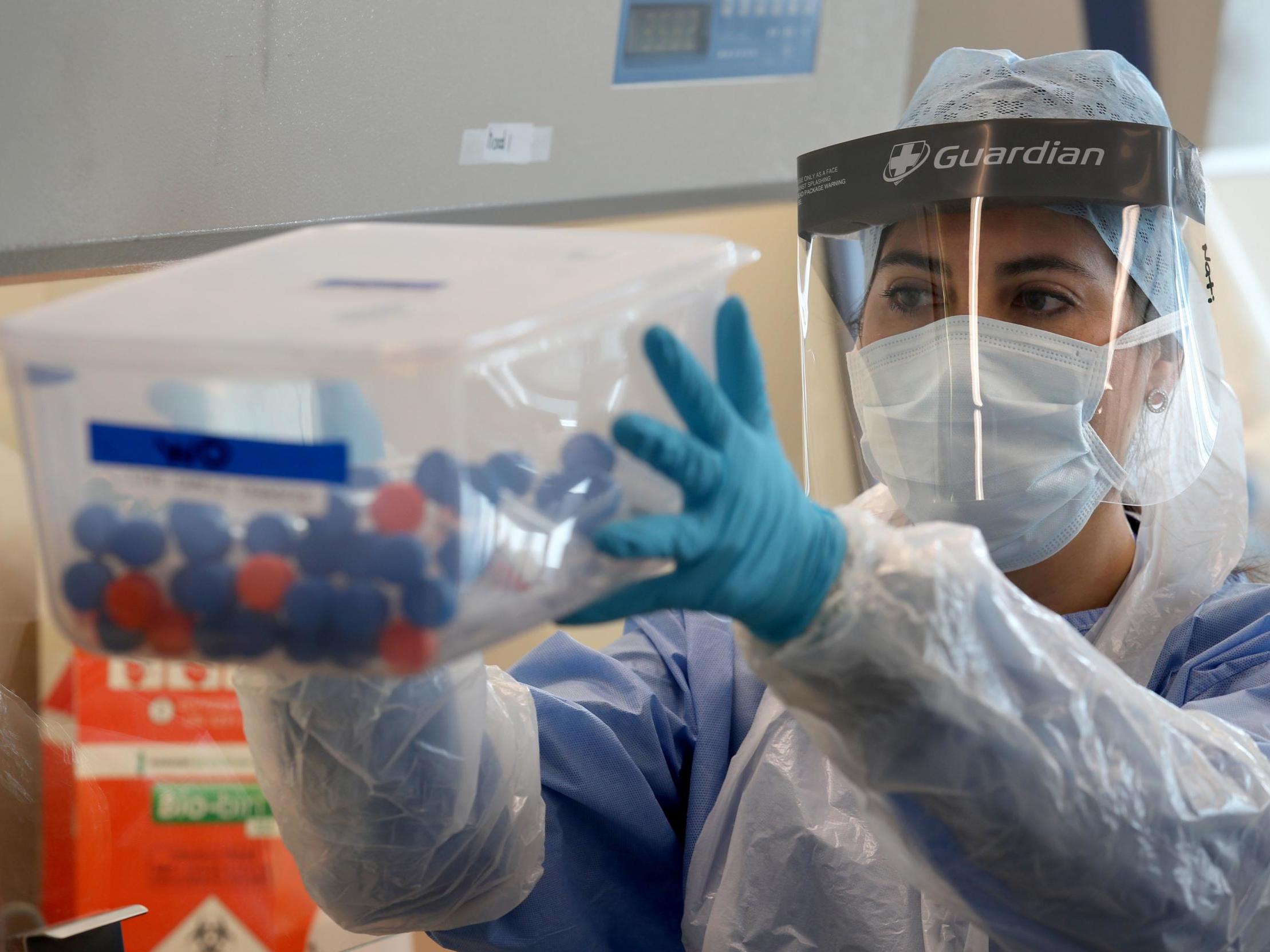New government study aims to test 300,000 for coronavirus and track immunity levels in UK population
Scheme could help ministers decide when to ease lockdown – once sufficient antibody test is developed

Your support helps us to tell the story
From reproductive rights to climate change to Big Tech, The Independent is on the ground when the story is developing. Whether it's investigating the financials of Elon Musk's pro-Trump PAC or producing our latest documentary, 'The A Word', which shines a light on the American women fighting for reproductive rights, we know how important it is to parse out the facts from the messaging.
At such a critical moment in US history, we need reporters on the ground. Your donation allows us to keep sending journalists to speak to both sides of the story.
The Independent is trusted by Americans across the entire political spectrum. And unlike many other quality news outlets, we choose not to lock Americans out of our reporting and analysis with paywalls. We believe quality journalism should be available to everyone, paid for by those who can afford it.
Your support makes all the difference.Tens of thousands of households are to be tested for coronavirus as part of a new government study which will monitor immunity levels among the UK population and track the spread of the infection.
Around 20,000 households in England will be contacted by healthcare professionals, and asked to provide a nose and throat swab test to see whether they currently have Covid-19.
Adults in some 1,000 of the households will also be asked to provide a blood sample to help establish what proportion of the population has developed antibodies - for which there is not currently a sufficient test available.
The initial findings are expected in early May, and it is hoped the study will eventually be extended to include up to 300,000 participants within the next 12 months.
“This survey will help to track the current extent of transmission and infection in the UK, while also answering crucial questions about immunity as we continue to build up our understanding of this new virus,” said Matt Hancock, the health secretary.
“Together, these results will help us better understand the spread of the virus to date, predict the future trajectory and inform future action we take, including crucially the development of ground-breaking new tests and treatments.”
The Department of Health, leading the study with the Office for National Statistics (ONS), said participants will form a representative sample of the UK population by age and geography.
Swab tests will show whether or not participants currently have the virus, allowing the government to monitor the rate and spread of infection. They will be asked to take further tests every week for the first five weeks, then every month for a year.
In addition, adults in around 1,000 of the households – where no one has Covid-19 symptoms or is self-isolating – will also provide blood samples, which scientists will test for antibodies.
Antibody testing is considered crucial in providing a pathway out of the current lockdown, and also providing data to those developing a vaccine.
However, Public Health England (PHE) does not have enough confidence in any of the tests currently available, according to England’s chief medical officer Chris Whitty.
Scientists at the University of Oxford are in the process of validating an antibody test, also known as an Elisa test, which will be used in this study.
They are on track to have a “fully validated and an accreditation compliant test” in place by 4 May, according to Professor Derrick Crook, one of the lead scientists.
This laboratory test will be used in the government study, but Prof Crook said there is capacity to process well over 20,000 tests a day should there be such a demand for testing.
Participants in the antibody test will be asked to give further samples monthly for the next 12 months.
Although swab test results will be given to participants via their GP, a letter seen by the PA news agency says that those participating in the antibody test will not receive their results.
The de-identified blood samples will be sent to the University of Oxford to be tested for antibodies, with infection testing swabs to be sent to UK Biocentre.
While home visits by healthcare workers to every participant in the study are likely to raise concerns, the government insisted healthcare workers will use recommended precautions to protect themselves and everyone in the household from getting the virus.
It comes as The Times reports an "army" of thousands of contact tracers, including civil servants and council staff, are to be trained to ensure every person thought to be infected in the UK can be isolated.
The reported aim would be to track at least 80 per cent of those who had been in contact with an infected person within 24 hours of diagnosis.
The UK abandoned mass testing and contact tracing in mid-March, a move that appeared at odds with World Health Organisation insistence to "test, test, test" every suspected patient.
Mr Hancock told MPs on Wednesday that the government hopes to introduce "large scale" contact tracing, saying: "Our goal is to get to a point where we can test, track and trace everybody who needs it."
The paper reports PHE hopes to have a contact tracing system up and running within three weeks.
Additional reporting by PA
Join our commenting forum
Join thought-provoking conversations, follow other Independent readers and see their replies
Comments